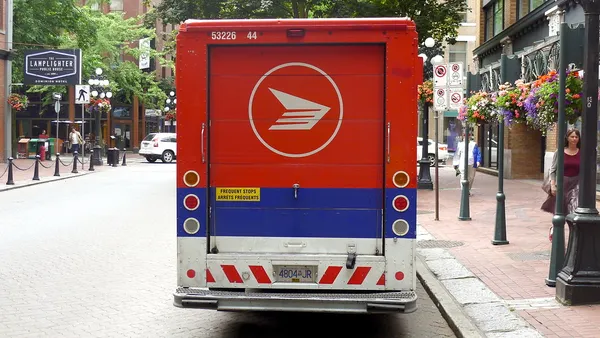Dive Brief:
- Payless ShoeSource filed for Chapter 11 bankruptcy protection on Tuesday, stating that 400 poorly performing stores would be closed, Retail Dive reported Wednesday. The failing footwear discounter intends to negotiate leasing terms for its remaining stores, or potentially close them.
- Court filings reveal that the company suffered from increased online shopping, resulting in its need to restructure the $840 million it accrued. Payless also mentioned the faulty methods in place when it purchased too much inventory back in 2015.
- To further complicate matters, those 2015 shipments arrived too late for Easter sales, thanks to a West Coast port labor dispute and slowdown. When the merchandise finally arrived, it went right to markdown, due to seasonal changes, The Wall Street Journal reports.
Dive Insight:
The last four months of the 2015 strike at the Port of Oakland involved increasingly slowed labor, some of which had a drastic impact on the supply chain in which it plays a significant role.
In fact, so great was the impact of the strike that 3PLs report considering alternative forms of transport, such as a switch from ocean to air freight or increased sourcing from Mexico. The potential damage of strikes is great; the actuality of strikes is devastating.
It is no wonder, then, that when East Coast workers threatened a national strike this year, business was quick to react. Statements were issued and letters delivered to Secretary of Transportation Elaine Chao, all voicing extreme concern over the impact such action would have. Estimates of the cost of previous strikes were priced at $1.9 billion per day in lost revenue. Thousands of companies and millions of workers were likely to be affected by a shutdown.
Payless serves as an example for what happens when inventory is disrupted. Recent examples also include European shippers, who are currently being affected by a capacity crunch in Asia-Europe lanes caused by the restructuring of shipping alliances.
Although ports are doing their best to improve reliability and avoid congestion, the rising frequency of large-scale disruptions should be of concern. Like 3PLs, shippers should consider diversifying ports or carriers and better enforcing contracts to ensure a slowdown in one area does not lead to millions in lost revenue.













